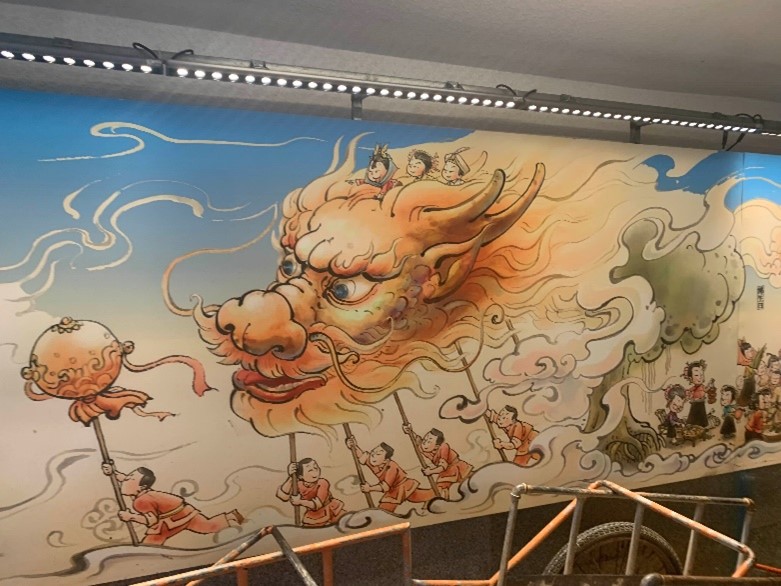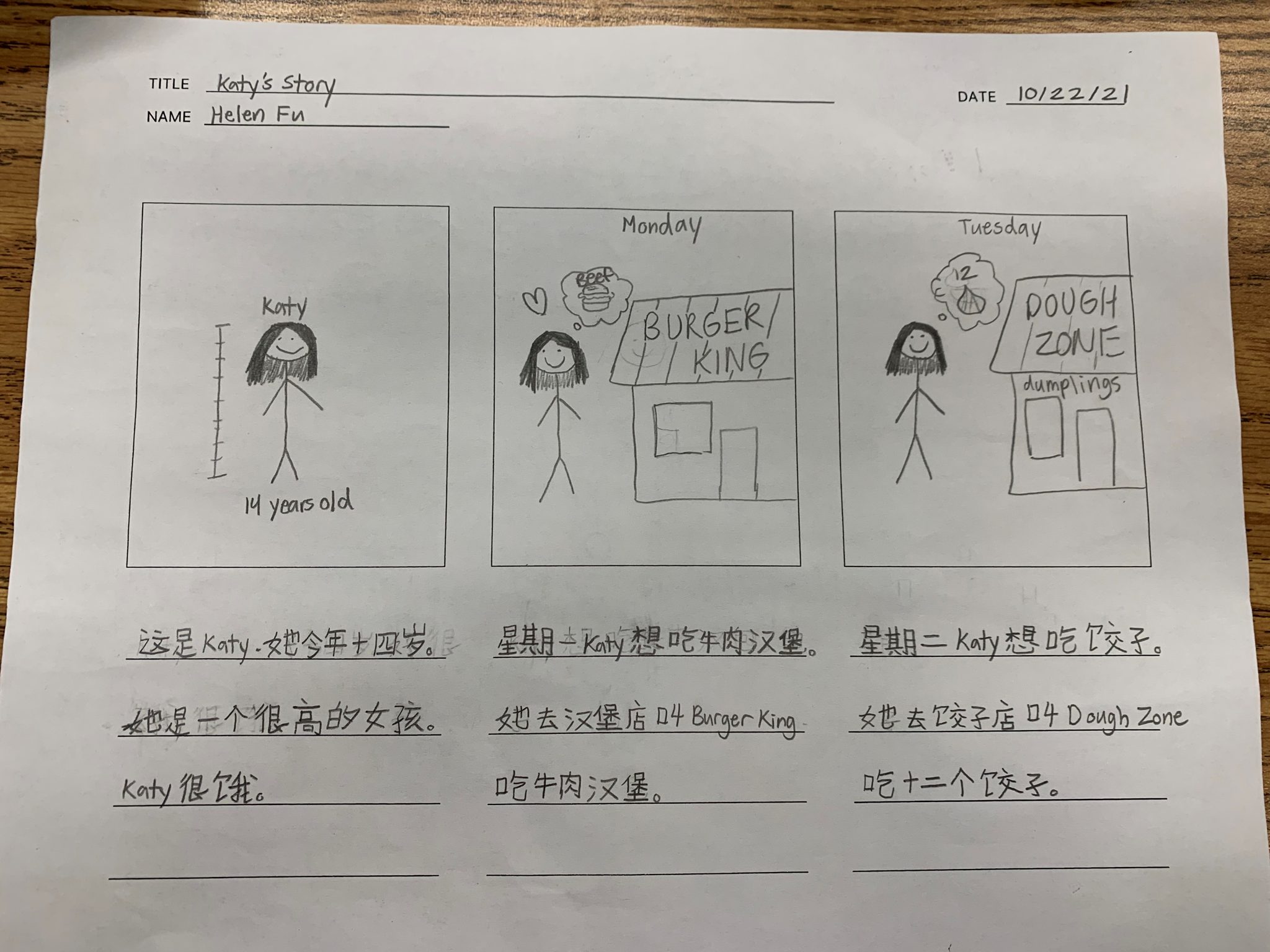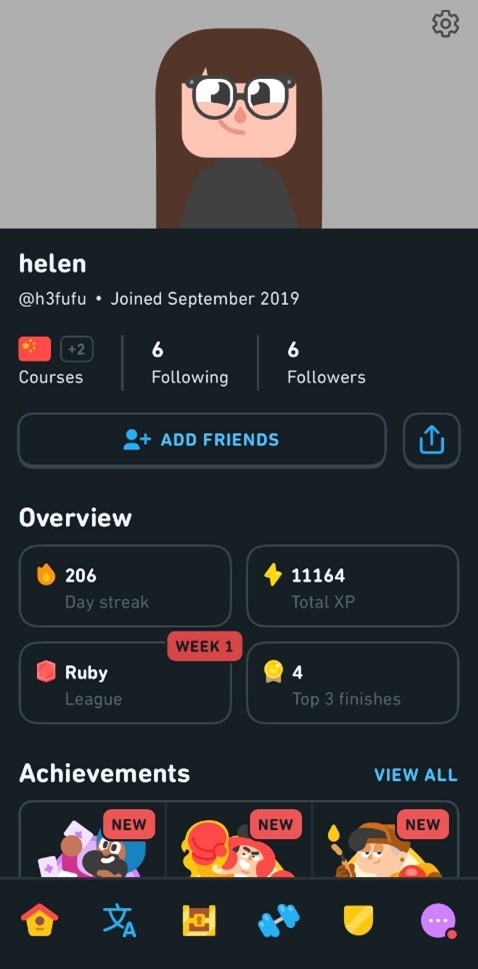By Ready WA Storyteller Helen F.
When I went back to China for my summer vacation before my junior year of high school, I didn’t expect to be speaking as much Mandarin as I did. The area I was visiting was my mother’s hometown, in the province Guangdong, where I believed that the main spoken language was Cantonese, another dialect of Chinese. When I got there, I quickly realized that, while the older generation spoke Cantonese, the younger generation mostly spoke Mandarin. In fact, I learned that most of the younger generation in China – not just in Guangdong – mainly speaks Mandarin. In that moment, I was so grateful for my high school Chinese teacher, Ms. Chiu, for teaching me Mandarin.

I was able to shop for clothes, say yes or no to questions, and just have a good, general understanding of what people were saying to me in Mandarin. My favorite part of the whole trip was seeing younger family members be so excited to see that I could speak and understand Mandarin, even though it wasn’t perfect. The truth is, I wouldn’t have reached this level without dedicating time and effort to learn Mandarin.
This can be said about any language.
In this blog, I’ll talk to you about the many benefits of learning a new language and giving you the resources to help you get started!
Benefits
Around the world, more than 50% of people speak more than one language. I believe that the more languages you learn, the more opportunities you unlock, because language proficiency allows you to meet more people and connect with other cultures.
There are many other benefits to being bilingual or multilingual. In this blog, I want to focus on three:
- Knowing multiple languages is advantageous when applying to colleges and universities.
- Multilingualism is a highly valued skill in the job market.
- Actively speaking multiple languages delays the onset of Alzheimer’s and dementia.

To start, many colleges or universities recommend a minimum of two years of foreign language study in high school, but the most competitive applicants often have learned one language for four years. (Important note: This means taking the same language for four years. Taking Spanish one year, and Chinese another, does not satisfy this requirement, for example. Do not make this mistake!) Some places, like the University of Washington, require learning a foreign language for certain majors (See more information here: UW Undergraduate Advising: Foreign Language). Either way, if you live in the State of Washington, most high schools require that you take two years of the same language class to graduate. If you’re in the Seattle Public Schools district, you can even earn a medallion to wear at your high school graduation if you score high enough on AP, IB, or competency-based credits for world languages! If you’re fluent in another language already, I highly recommend this! (See more information here: Seal of Biliteracy – Seattle Public Schools).
Next, according to a 2019 report, titled Making Languages Our Business: Addressing Foreign Language Demand Among U.S. Employers, 90% of employers in the United States rely on employees who speak languages other than English. In communication-focused roles, for example, knowing another language can help you stand out by showing you can connect with a wide range of people. Of course, knowing another language can also broaden your range of customers if you work in business. I highly recommend reading this article by Indeed, the popular job search engine, as it explains in more detail the benefits of speaking more languages! (See more information here: How Speaking Multiple Languages Impacts Your Career | Indeed.com)
Lastly, according to the American Psychological Association (APA), actively speaking another language delays the onset of Alzheimer’s and dementia. (See more here: The benefits of being bilingual). Speaking multiple languages at once is an exercise for your brain, and your brain needs that exercise to fight off Alzheimer’s and dementia! A good example is my dad, who speaks multiple dialects of Chinese (which are so different from one another, they’re arguably different languages), Vietnamese, and English. I believe that speaking all of these languages has helped him stay cognitively healthy and sharp! You, too, can keep your mind and brain healthy by learning more languages!
Resources

So how can you start? Well, there are many ways, but the easiest way is through school. If you live in Washington and are a high school student, your school likely offers a world language course to take for credits to graduate. For instance, my high school, Franklin High School, offers Spanish, Japanese, and Chinese up to level 3 or 4, and AP classes for these languages are also offered. If you prefer to take other classes at school but still need the language credits, I recommend OneWorld Now! They are an afterschool program that teaches Arabic, Korean, Mandarin Chinese, Russian, or Swahili! You can take the classes in-person at one of their sites, or online via Zoom. You can earn high school credits doing it, and, if you’re dedicated enough, you can even study abroad with them! (See more here: After-School Program – OneWorld Now!) If (like me!) you can‘t get enough of language learning, I would download the popular language learning app, Duolingo, and learn there. Keeping a streak is super fun, and you only need to spend five minutes at most daily to do a single lesson and keep your streak going.
Conclusion
Learn a new language! Don’t think too hard about it and just try! I promise you it’ll help you in the long run.
What’s next for me, you ask? I’m hoping to learn American Sign Language and other Asian languages, such as Tagalog, Japanese, and Korean in the future. Will you join me?
Have fun learning!